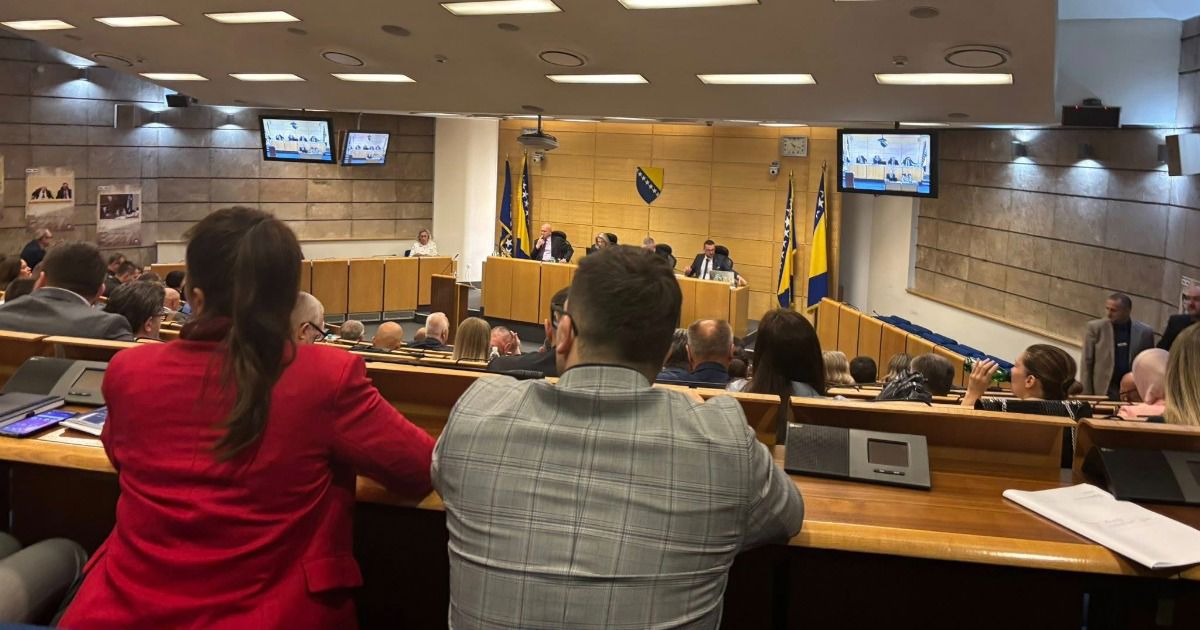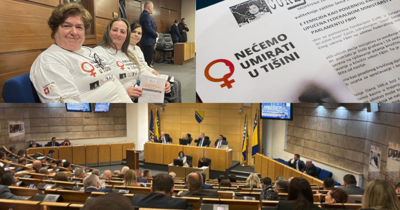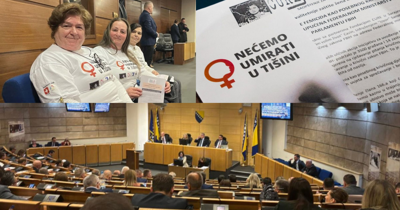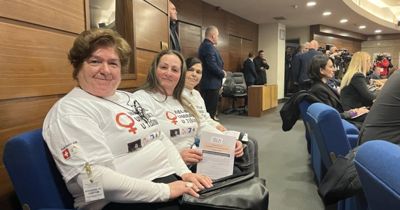
Following the unanimous adoption by the House of Representatives of the Parliament of the Federation of Bosnia and Herzegovina (FBiH) on May 29 of the amendments to the Criminal Code of FBiH—which, for the first time, defines femicide as a distinct criminal offense—the focus now shifts to the House of Peoples. The session is scheduled for June 10, and civil society organizations that led the campaign for these changes are expecting the proposal to be confirmed without delay.
"I welcome the decision of the House of Representatives of the FBiH Parliament and thank all government representatives who contributed to finally recognizing femicide as a separate criminal offense. This is truly a historic moment for all victims of gender-based violence and a turning point in the fight against gender-based killings of women. I expect the House of Peoples of the FBiH Parliament to confirm this proposal for amendments to the Criminal Code of FBiH as well,” said Neira Raković, coordinator of the campaign We Won’t Die in Silence, after the unanimous vote.
Specifically, Article 166a was added to the Criminal Code of FBiH: Aggravated Murder of a Female Person. According to this provision, “anyone who commits a gender-based killing of a female person shall be punished with a prison sentence of ten years or long-term imprisonment.” In determining this criminal offense, circumstances such as prior abuse, relationships of dependence or subordination, the victim’s vulnerability, or other factors indicating gender-based violence will be taken into account. An amendment was also adopted defining the concept of gender-based violence against women and recognizing it as an aggravating circumstance.
This important legislative milestone was preceded by months of advocacy efforts led from Bihać, focusing on the victims and community mobilization. The organization Glas žene Bihać and its partner associations, through the campaign “We Won’t Die in Silence” supported by the PRAGG project, mobilized citizens and collected thousands of signatures of support.
“We had to involve citizens, and at one point, a whole wave of people across the Federation rose to their feet. There was significant resistance—primarily from the Ministry of Justice—until we organized a scientific-expert conference that clearly demonstrated, with academic and professional backing, that a specific criminal offense must be introduced into the Criminal Code to adequately address gender-based killings of women. It was challenging, but thanks to good strategy, timely and appropriate actions, we succeeded in convincing the authorities.”
However, passing the law is only the first step. For femicide to truly be recognized and prosecuted on the ground, consistent implementation is essential.
“Without proper enforcement, the law will have no impact. We are already facing challenges in the implementation of the Law on Protection Against Domestic Violence. That’s why we have started with education—we organized the first specialized training for institutional representatives, primarily in the Una-Sana Canton. Our goal is to strengthen their capacities so they can recognize, investigate, and prosecute femicide, and in doing so, prevent it,” added representatives from the organization Glas žene (Voice of Women).
The decision by the House of Peoples on June 10 will be crucial. It will close one chapter of this struggle and open another—focused on institutional responsibility, training, law enforcement, and building a society in which women are not killed simply for being women.
“The only thing we expect—something that is rational and logical—is that the House of Peoples will support the Proposal to Amend the Criminal Code of FBiH, if not unanimously, then at least by majority vote, thus affirming Article 166a – Aggravated Murder of a Female Person (i.e., femicide),” concluded Neira Raković.








